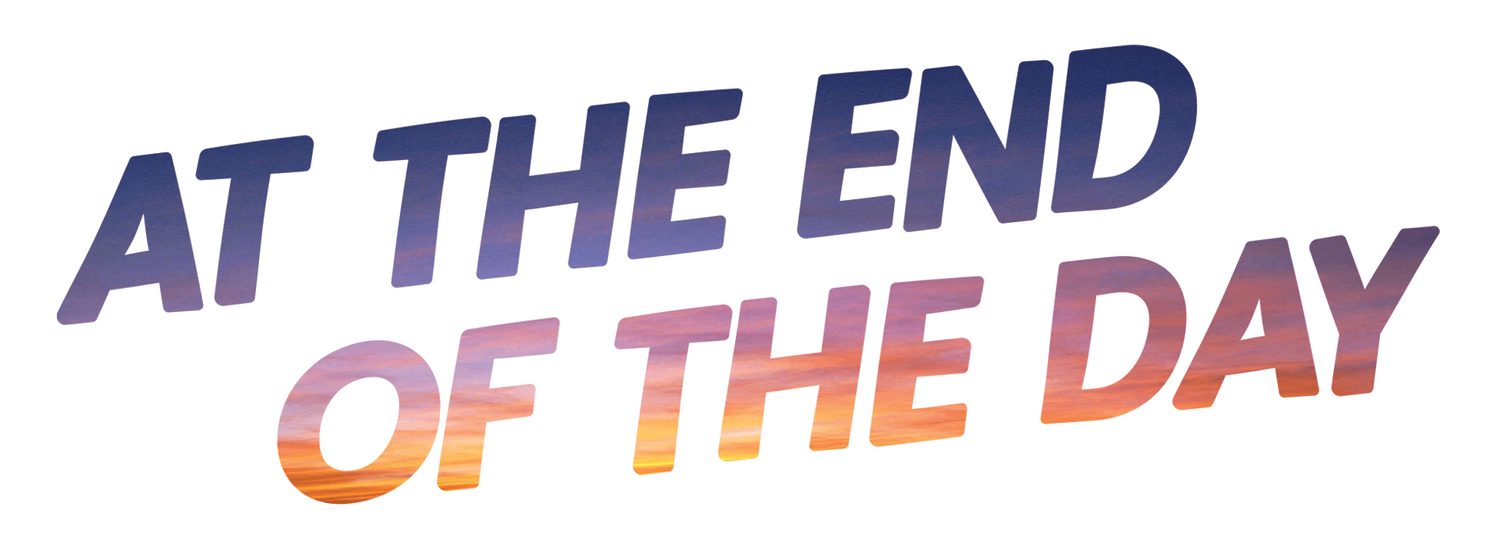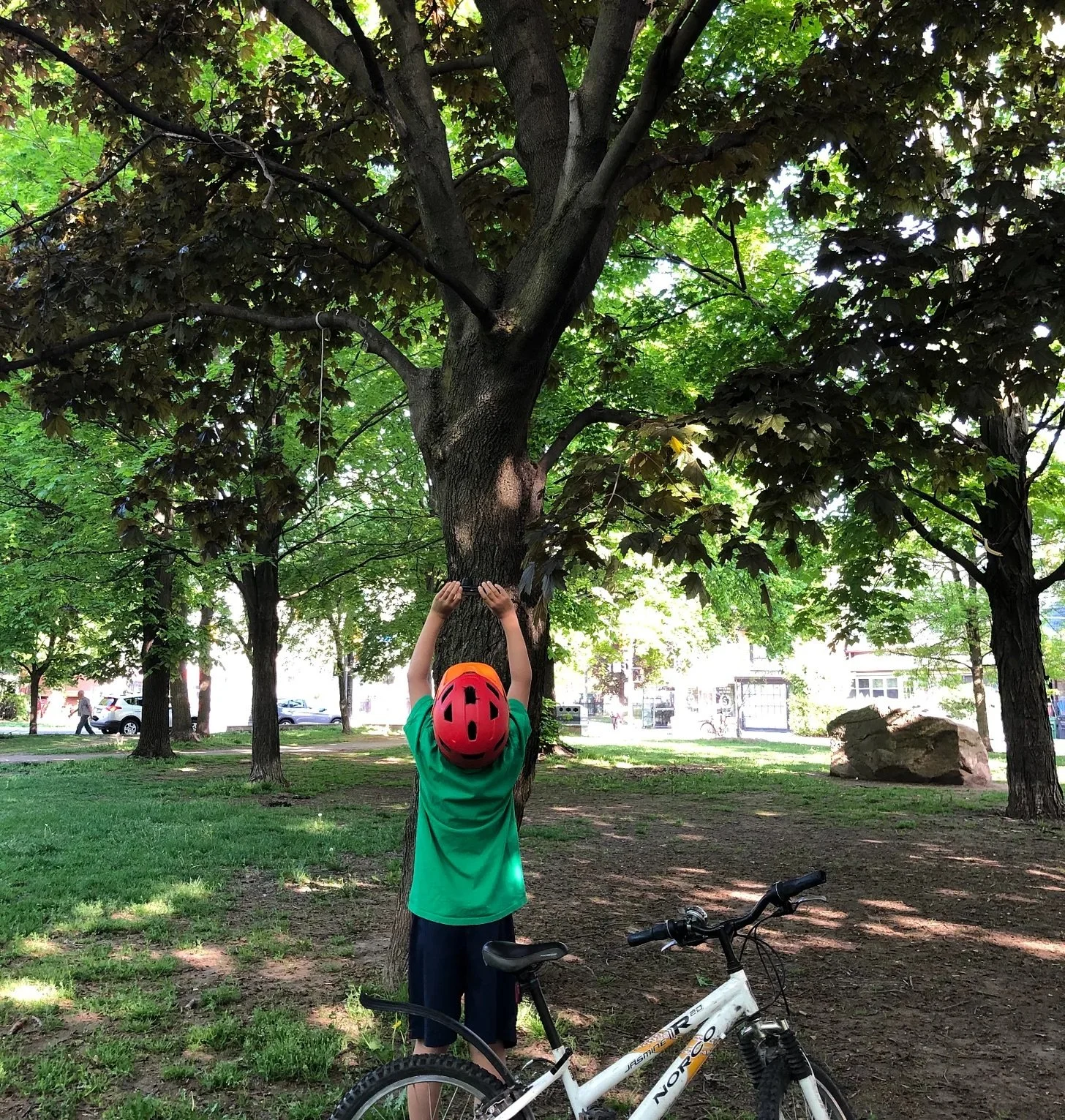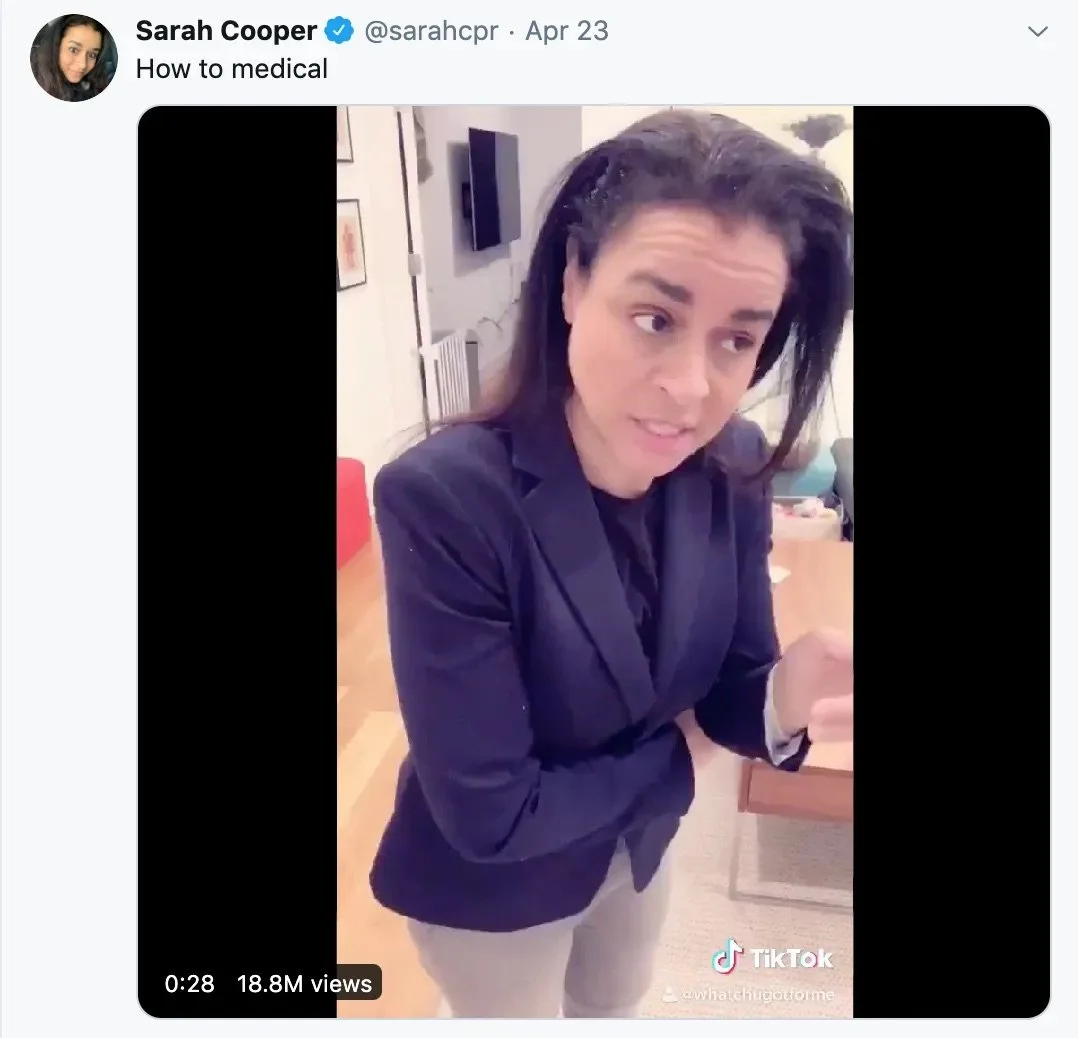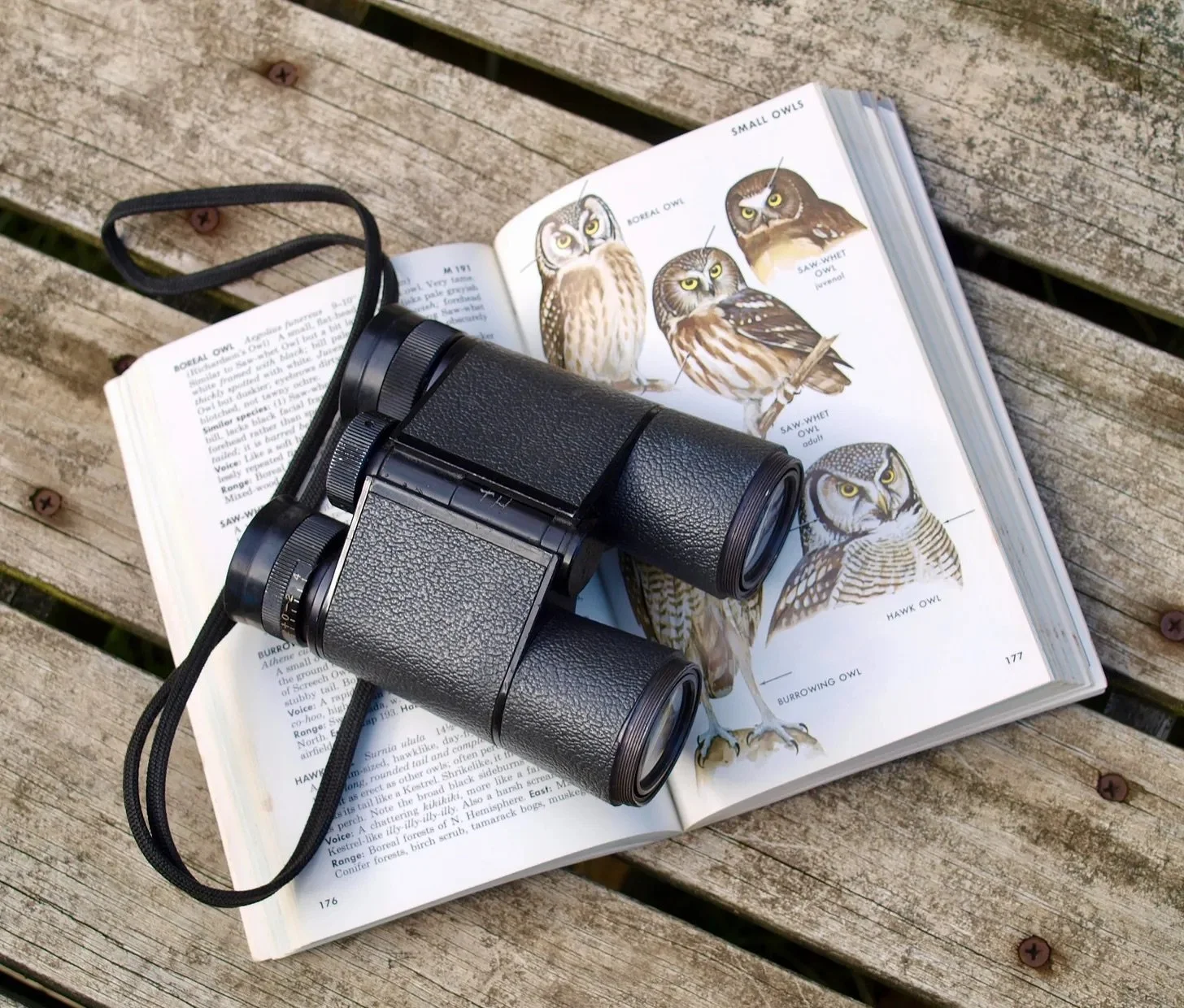Birding, the pleasure and privilege
Welcome to At The End Of The Day, a newsletter that puts a people-first perspective on the news.
I’m Hannah Sung and I write this newsletter.
Be part of what I’m making by subscribing.
And if you’re already subscribed, why not forward to a friend?
As I continue growing this newsletter, I am loving the conversations I’ve been having with you, my original ATEOD crew.
Questions? Suggestions? Email me: ateodletter@gmail.com
Birding more than ever
For a while this spring, my 8-year-old and I would often see birds “fighting.”
“Huh, wow, look at that,” I’d muse, totally forgetting our springtime status.
“They’re mating,” my son would correct me, matter-of-factly, then go into detail on the timeline of mating, eggs, and baby birds.
Oh right, yes. It took my child to point out the birds and the bees.
Now the birds are done jumping each other’s bones and we keep tabs on several nests. There are baby robins, red-winged blackbirds and baby hawks in our neighbourhood.
We aren’t spotting as many of what my kid truly prizes, the goldfinches, orioles, cardinals and woodpeckers. Is it because they’re all warming their baby buns in their nests?
My baby bird trying to capture a pic of spring hatchlings
Pre-pandemic, I think we associated birding with retirees, but there’s something about this activity that taps into a child-like wonder with the world and keeps it alive. It’s a vibe we can all use right now. People who are addicted to birds have a constant supply of that natural zing of being impressed, and healed, by the beauty of nature.
For all the folks who send me tips on sightings, or shows or questions about birds they’re seeing on their own walks, thanks so much. I think of you as I enjoy this amazing time with my kid.
Birding while Black
This week, a birder went viral when he took video of a racist confrontation he endured in Central Park. Birdwatcher Christian Cooper, a Black man, asked Amy Cooper, a white woman of no relation, to put her dog on a leash, as per the park’s rules. Instead, she called the police to say, “an African-American man is threatening me.” [1]
By now, everyone knows this story of birdwatcher Christian Cooper. I felt like I had seen it before I even watched the video.
It still feels terrible to watch. To hear the elevated emotions in both their voices. It reminds us how visceral anti-Blackness can be.
When the video went viral, the online condemnation was swift. I don’t love the effect of naming and shaming individuals, for no reason other than I’m not sure it’s effective at changing racist attitudes (and I won’t even get into the death threats, which she received).
But I do love the power of social media to call out behaviour for what it is. When people call it racist, that’s because it is, and it’s rooted in a long, violent and ongoing history. [2]
What I can’t stand is media reports that don’t use the right words. When I Googled this story, I noticed that headlines didn’t use the word “racist” until after the woman was fired from her job. Why? Are journalists afraid to use the words that accurately describe what happened?
It shows the importance of leaders using the right words, including her former employer and the mayor of New York. After they condemned the act as racist, the media started inserting the word “racist” in headlines, too.
In the immediate aftermath, Amy Cooper issued a public apology. She told CNN: “I’m not a racist. I did not mean to harm that man…I don’t mean any harm to the African American community.”
When I see that apology, I think of advocate Amy Go, with whom I was on a Zoom panel earlier this week on the topic of anti-racism. She said that it’s not about the intent of the act (“I did not mean to harm that man”) it’s the result (yes, it did cause harm). That’s what matters, in an anti-racism, anti-oppression context, and that’s what needs to be addressed. Not parsing intentions.
There is no silver lining to racist incidents like this, so I won’t pose it that way, but this week, I’ve been learning a lot about “birding while Black,” a phrase that pre-dates this week’s Central Park incident. [3]
A friend sent me this YouTube show called Birds of North America with Jason Ward. [4]
Ward is a young birder who is also Black and happened to have Christian Cooper on one of his episodes.
Last night after dinner, I sat with my son and binge-watched at least half a dozen episodes before I said we had to call it a night.
“Aw, Mommy. Can I talk to him?”
“No,” I laughed. “He’s a stranger on a show! He lives in a different city!”
“Please, Mommy. Can you message him? I just want to talk to him.”
To my child, birding is where you can strike up conversation with any stranger you want. If you’ve got binos or a long-lens camera in a park, my son will make a straight beeline until he’s sidled up next to you asking, “What are you looking at?”
“Please, Mommy.” As if I’m some sort of meanie gatekeeper.
I can’t message the host of this show! (Technically, I can. Maybe I’ll suggest my son write a fan letter).
More importantly, I’m glad there are people like Jason Ward, doing what they love despite being conspicuous in what can be an inhospitable environment. Sometimes, when you’re the only Black or racialized person there, you’re a leader just by doing.
Below, I’ve got links to some great birders to follow, including Jason Ward, his brother Jeffrey Ward, J. Drew Lanham, Corina Newsome and Jacqueline Scott, whose work I stumbled into after my family met her on a park path in Toronto (we were all birding at the time, of course!). I’m grateful for their work, which is an intersection of birding, outdoor recreation, and race. [5]
Remember to anti-racism
I was on a Zoom panel this week with several great people on the topic of creative resistance to anti-Asian racism tied to COVID.
Racist attacks against anti-Asian people are unacceptable. You might be laughing about Bryan Adams, writing him off as a CanCon has-been, but truth is that our attitudes are shaped by public figures like him. [6]
If you’ve experienced or witnessed anything, please report it. Not necessarily to police, but to an organization that will help you and document these events. They need to be tracked. I have links below. [7]
Being a witness can also be traumatizing. Prepare yourself to know what to do by learning how not to be a bystander. [8]
Don’t just thank workers, protect them
On the radio this week, I heard the 16-year-old daughter of Cargill worker Benito Quesada, who died from COVID. She said Cargill was offering $500 bonuses to workers who didn’t miss a day of work in April. [9]
I was stunned by this. You may be more cynical about corporations valuing profits over people but pandemic! Pressuring low-income workers to work in unsafe conditions is not a real choice and it is so counter to everything we have been collectively trying so hard to do with physical distancing. Who cares about Trinity Bellwoods when the world’s largest private company is incentivizing vulnerable workers to work in unsafe conditions? [10]
I’m so angry about this. If you are, too, activist Michael DeForge spoke with me last month about where you can direct that energy. [11]
I read that 70% of Cargill workers are Filippino (the family who lost their father, above, are originally from Mexico). The coronavirus, as we see time and again, preys on vulnerable populations, including low-income workers. [12]
The horrifying conditions in long-term care homes also reflect a lack of support for low-income workers, namely personal support workers who are mostly immigrant women. If these PSWs were supported, the elderly folks in these homes would fare better, too. [13]
It’s not enough for politicians to just make dramatic speeches at press conferences. We need better policy and systems around workers’ rights for better, more stable work and guaranteed sick pay. It will help everyone who needs to be cared for. Remember the essential caring work that’s overwhelmingly done by racialized women. They deserve better.
Time for the funny now
Guys, so much of today’s letter was a downer. I think I’m bummed out about Ontario’s unreasonable lack of organization around contact tracing and a haphazard re-opening of the economy. Plus, all of the above.
So I’m leaving you with a truly great write-up on the TikTok videos that have kept us going with the funniest way of subverting the jumbled mistruths and rhetoric of the President of the United States — by simply quoting him.
This New York Times story helps me continue my trend of only consuming TikTok off-platform (listen, that is my age demo). [14]
Sarah Cooper on TikTok-ing on Twitter
If you liked what you read, please forward to a friend or share on social. I’m super-grateful for your eyeballs and the thoughts you’re having on what matters most to you at the end of the day.
See you next week,
Hannah
Further Reading (This unwieldly long list might be growing out of control?)
[1] The Bird Watcher, That Incident and His Feelings on the Woman’s Fate, The New York Times
[2] A White Damsel Leveraged Racial Power and Failed, The New York Times
[3] Birding While Black, J. Drew Lahnam on race, belonging and a love of nature, Lithub
[4] Birds of North America with Jason Ward
[5] Jason Ward on Twitter, Jeffrey Ward on Twitter, the Ward brothers in “Birding Brothers of the Bronx,” New Yorker, J. Drew Lanham, Corina Newsome, Jacqueline Scott on Twitter.
[6] Everyone’s asking the wrong question about Bryan Adams, The Toronto Star
[7] Fight COVID-19 racism by reporting racist instances. Fight COVID Racism is a collaboration by multiple advocacy groups, as is Act 2 End Racism, another place to learn and report on racist incidents.
[8] Don’t Be A Bystander: 6 Tips for Responding to Racist Attacks, Barnard Center for Research on Women
[9] Mourning family of Cargill COVID-19 death feel left behind by company, CBC
[10] America’s Largest Private Companies, Forbes
[11] Are we all in this together or what? ATEOD interview with artist and activist Michael DeForge
[12] Under the Shadow of Contagion: Abuse of Filipino Workers in Alberta’s Largest COVID-19 Outbreak, Canadian Dimension
[13] Inquiry into coronavirus nursing home deaths needs to include discussion of workers and race, The Conversation
[14] Trump Said, ‘I Have The Best Words.’ Now They’re Hers, The New York Times
Credit
Credit: Diane Helentjaris, Unsplash



